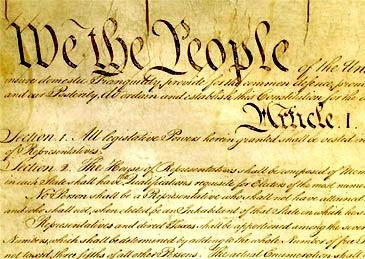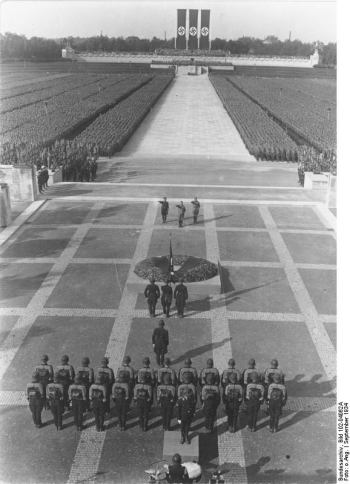Does God Exist?
Scientific and philosophical arguments supporting monotheism.
III. The Moral Law Argument
This argument for the existence of God is based on the premise that absolute moral values of right and wrong exist and that these inescapable ethics of a moral nature point to an absolute Law Giver. The argument is framed like this:
1. If God does not exist, objective moral values and duties do not exist.
2. Objective moral values and duties do exist.
3. Therefore God exists.
If we believe that the premise of this argument is true, we must logically believe that the conclusion is true as well. Although those who adhere to the theory of evolution ascribe this “moral sense” to instincts and genetics, it still does not explain why something is absolutely right or wrong. Why do we believe that we should act one way rather than another? Another way to state this argument would be as follows:
1. Every law has a Law Giver.
2. There is a moral law.
3. Therefore, there is a moral Law Giver.
This moral law is an internal moral code that all people of all cultures possess which provides a basis for their sense of right and wrong. For instance, love is better than hate and courage is better than fearful cowardice, respecting life is better than murder and honesty is superior to dishonesty.
As C.S. Lewis stated “Think of a country where people were admired for running away in battles or where a man felt proud of double-crossing all the people who had been kindest to him. You might just as well try to imagine a country where two and two made five”. 14
Your Conscience
This internal moral compass is referred to as “conscience”, “natural law or natures law” or as we are using it here “moral law”. This moral standard is set into the minds of all people and is binding on all people at all times and in all cultural settings. This fact of a moral law points to a Law Giver who has set this law into the minds of mankind. In a world without God as the basis of moral values there can be no objective right or wrong standards only subjective judgments and opinions. There would be neither good or evil only valueless non-binding preferences. People would live for no ultimate purpose.
Without this moral law, we would not be able to condemn war, murder, rape, child abuse or look upon the oppression of the innocent as wrong. We would not be able to approve compassion, sacrifice and love as good and right. However, we each recognize that there is a moral code, and we appeal to it throughout our daily lives. This internal sense of right and wrong is the basis of all human rights such as the freedom of speech, the importance of human value, and the necessity of being treated with dignity and respect. All of us understand that we live in a world that demands of us to make moral decisions and choices. If there are no absolute moral laws then fairness, justice and right versus wrong cannot really exist.
C.S. Lewis who was an atheist prior to his coming to faith as a Christian wrote: “[As an atheist] my argument against God was that the universe seemed so cruel and unjust. But how had I got this idea of just and unjust? A man does not call a line crooked unless he has some idea of a straight line. What was I comparing this universe with when I called it unjust”.15 C.S. Lewis is essentially saying that the reason he could observe and discern injustice in the world is because there is an objective standard of justice that serves as the measuring device to be able to make this observation valid and that this standard has been written within the very heart of man.

The Basis of all Human Rights?
In the Declaration of Independence, Thomas Jefferson affirmed:“We hold these truths to be self-evident that all men are created equal, that they are endowed by their Creator with certain unalienable rights, that among these are life, liberty and the pursuit of happiness. That to secure these rights governments are instituted among men deriving their just powers from the consent of the governed”.The American Fathers believed that these human and moral rights were “endowed by their Creator” and that they were absolute and applied to all of humanity. They appealed to the Creator as the Provider of these moral laws. They asserted that these internal laws (values) formed the basis to discern good from evil, justice from injustice and right from wrong. If we affirm that there is no such thing as moral absolutes, then we must recognize that we only have “moral” opinions and preferences. Atheism, to be consistent, must believe that there is nothing wrong with murder, torture, rape or other horrible acts against others. An atheist would also have to believe that whatever moral values we do ascribe to came from literally nothing. If there is no God, then all of the horrible injustices that have been committed by men are simply a matter of opinion. However, if we know that there is at least one thing that is absolutely morally wrong then we must affirm that God, the Moral Law Giver, does exist.
Objections to the Moral Law Argument
There are some objections that can be raised regarding the validity of this moral law argument. For instance one might ask “if this moral law exists why do people act contrary to it”? The answer to this question is that just because we do not obey a certain law does not mean that the law does not exist. We have laws in every society that people do not obey but just because the law is violated does not mean that the law is not real or valid. For example we have laws against theft and slander but still people steal and commit slanderous speech. The laws are real regardless of whether they are obeyed or not. The same is true with the internal moral law and the universal moral code. The law and sense of good and evil resides within us regardless of whether we obey it. People have moral values that provide guidance for how they are to live out their lives and yet still fail at various points to obey and follow those values.
From what source could man develop this moral sense except from a Creator who has moral qualities. Education and lifestyle influences may break down the moral sense in society and yet this moral and ethical conscience still remains and acts as a monitor of unjust and immoral behavior, and it confirms that man is a moral being: the product and end result of a moral Creator not a mere creature of chance.
Another objection that is raised against the moral law and its relationship to a moral Law Giver is – to ascribe this moral sense to a natural “preservation instinct or herd instinct”.
This concept states that people do things that are “moral” only out of a sense of self preservation and survival impulse. However, when we examine the realities of life we see that this appears to not be the case. Why would we have an impulse to help someone when helping that person could put us in serious danger? Why do we know that trying to help is the right thing to do? Why do we know that lying or cheating is not right even though it may be the best response in a particular situation for us personally? The self- preservation instinct may account for some of the things that people do but it cannot account for the moral obligations that we have which cause us to act in ways that do not serve us personally.
The reason we have this moral obligation to do good and not evil, to do right and not wrong is best accounted for by this internal moral law given to us by the ultimate Law Giver.
The third objection that is raised is that this moral code is not universal but it is only a cultural value system that is dependent upon where and when you live and the type of environmental setting that you exist in. There is however no society that lacks an ethic or moral code and at the basis of these values is a common core with which all other cultures and societies agree and are held accountable to. The way that each society and group of people applies and interprets these values may be different and in many cases they may not even live according to them for periods of time, still the underlying common value system is still present.
For example, murder and torture of innocent people is wrong in every society even though the manner in which these values are enforced and maintained may be different. One person cannot kill another person for just any reason. One cannot torture children or take another man’s wife and family just because he has the power to do so. These common values are evident among all cultures and societies both in the present and in history past.
 |
Following World War II, the German military officers and physicians who committed crimes in the Jewish prisoner camps were brought to trial in Nuremberg, Germany in 1945-1946. The lawyers for the German military personnel made their case that these officers and doctors only performed acts that were morally acceptable to the nation and culture of Germany during the period of time of World War II. The lawyers argued that these officers simply obeyed the moral relativism that was in effect in Germany at that time. To now hold them to some “different” moral law held to by other cultures and to make judgments against them by some other moral standard was not right.
However, the world court did not agree and decided that there indeed was a higher moral law that should have been known and understood by all of Germany. This higher standard still held them accountable to it and they were convicted as war criminals by committing crimes against humanity. The world court essentially appealed to the moral values and ethics of an absolute moral law that superceded the moral relativism of German culture. This moral law was considered absolute, unchanging and simply could not be refuted regardless of cultural or societal differences.
Why the Denial?
Many of us who continue to deny the existence of God may be moved to this intellectual position by our own desire to be in control, to be our own God, to a make our own life decisions. But deep down inside of us we are really afraid that there may just be a moral Law Giver and that one day He will hold us accountable for our rebellion and denial of Him. Is there a moral law which is the final standard by which everything is measured? Is God and His Nature the real basis for objective right and wrong? Is this absolute standard written internally in the very hearts of men?
Norman Geisler and Frank Turek provide a great answer to these questions with these two points: “If there is no God, then what Hitler did was just a matter of opinion and – If at least one thing is really morally wrong – like it’s wrong to torture babies or it’s wrong to intentionally fly planes into buildings with innocent people in them, then God exists”. 16
Conclusion:
If atheism is true, then there is no basis to measure whether something is right or wrong, good or evil. As the famous atheist philosopher Friedrich Nietzche is quoted as stating – “you have your way ,I have my way, the correct way and the only way, it does not exist”. 17 However, we all understand and appeal to an absolute moral value system. We know that this standard confirms for us that good and evil, right and wrong really does exist. These moral absolute laws, values and duties are real and this reality points to the absolute moral Law Giver.
